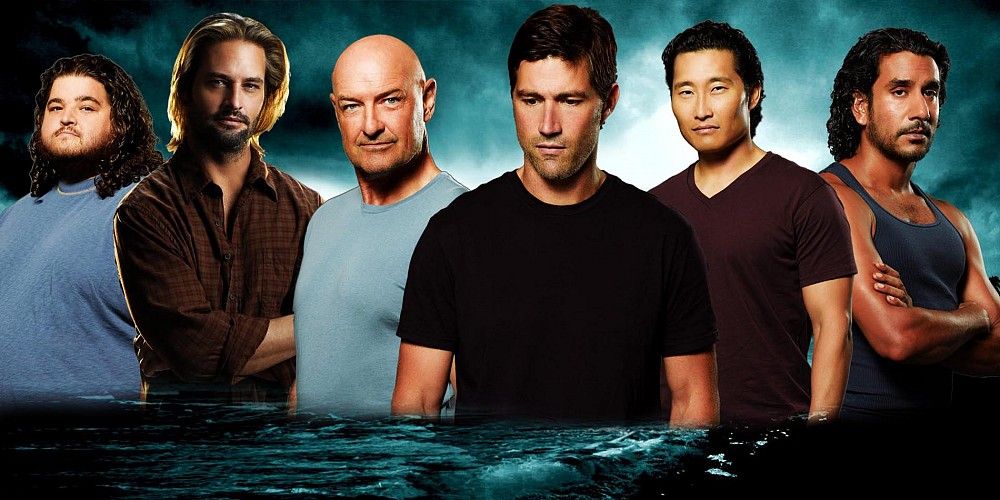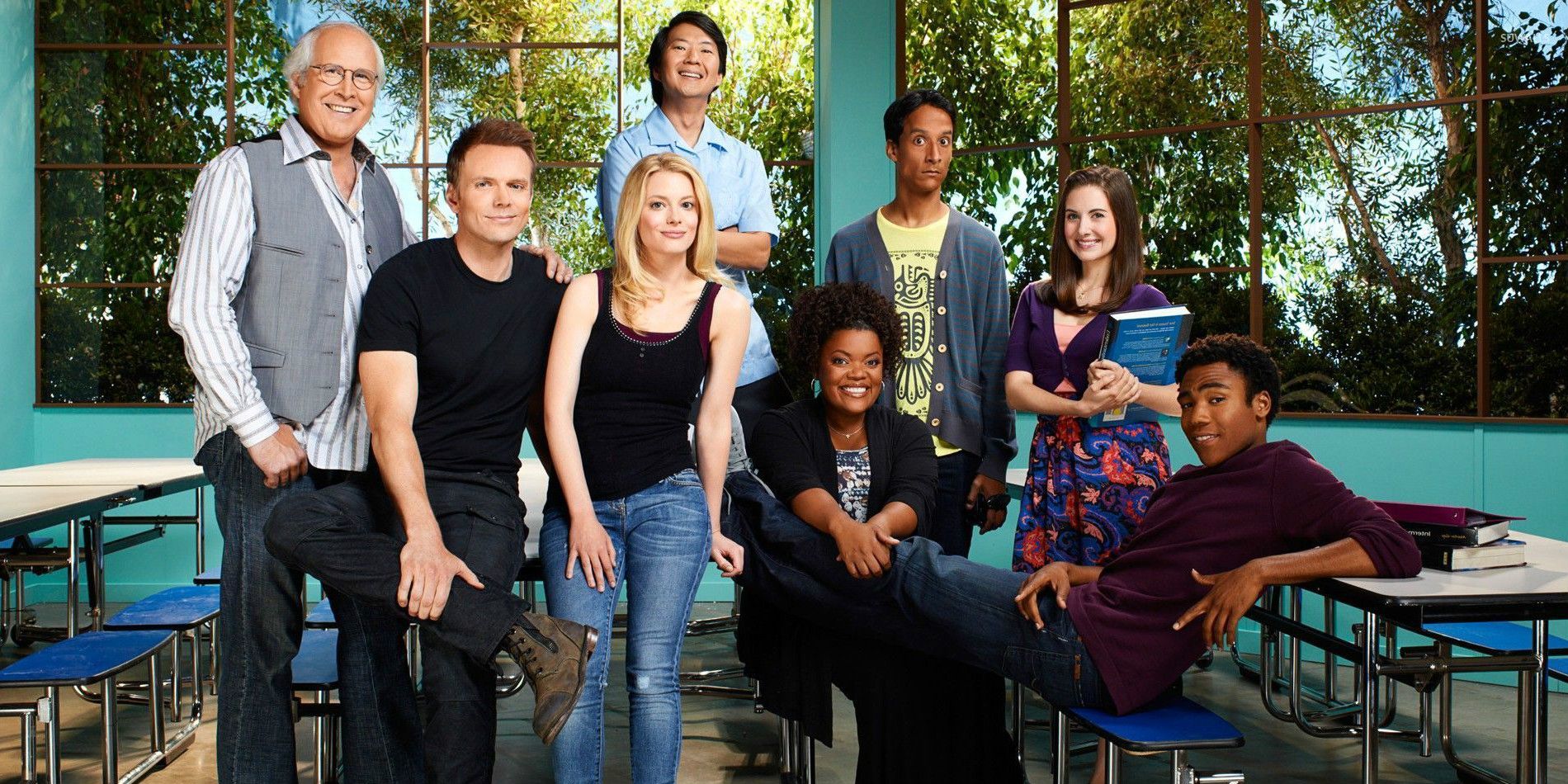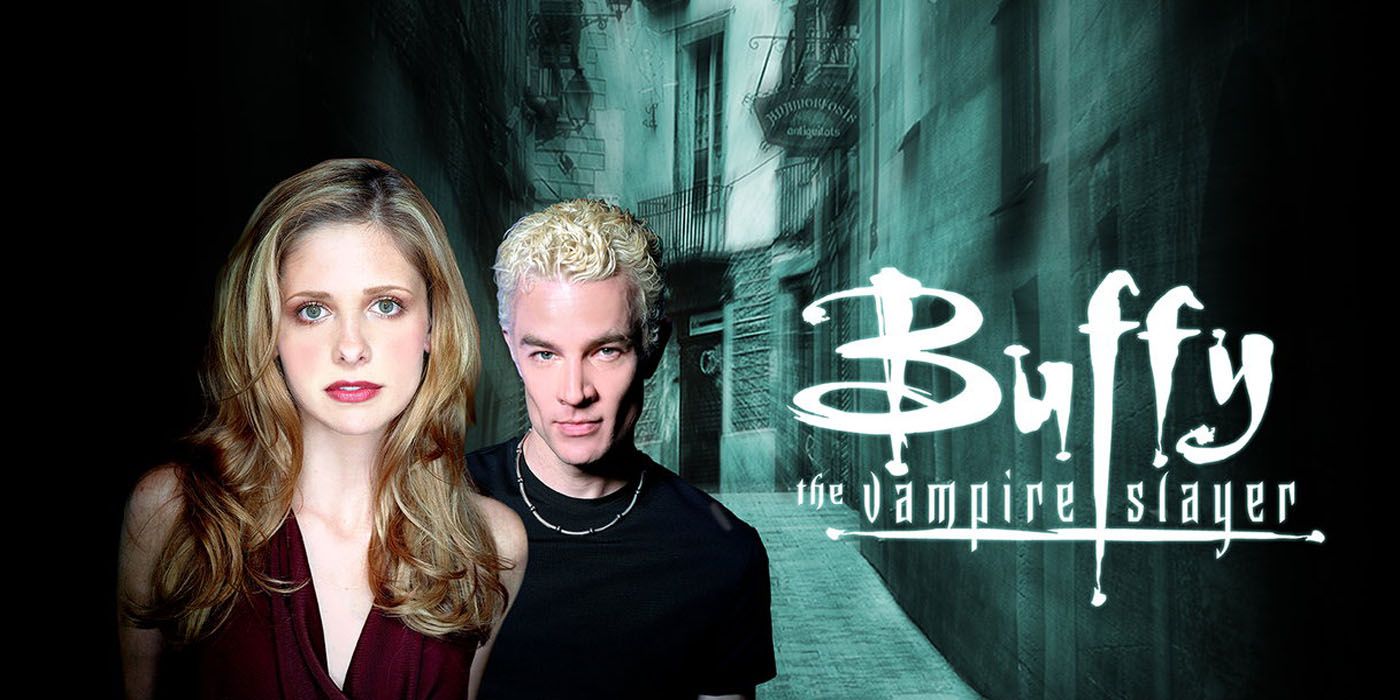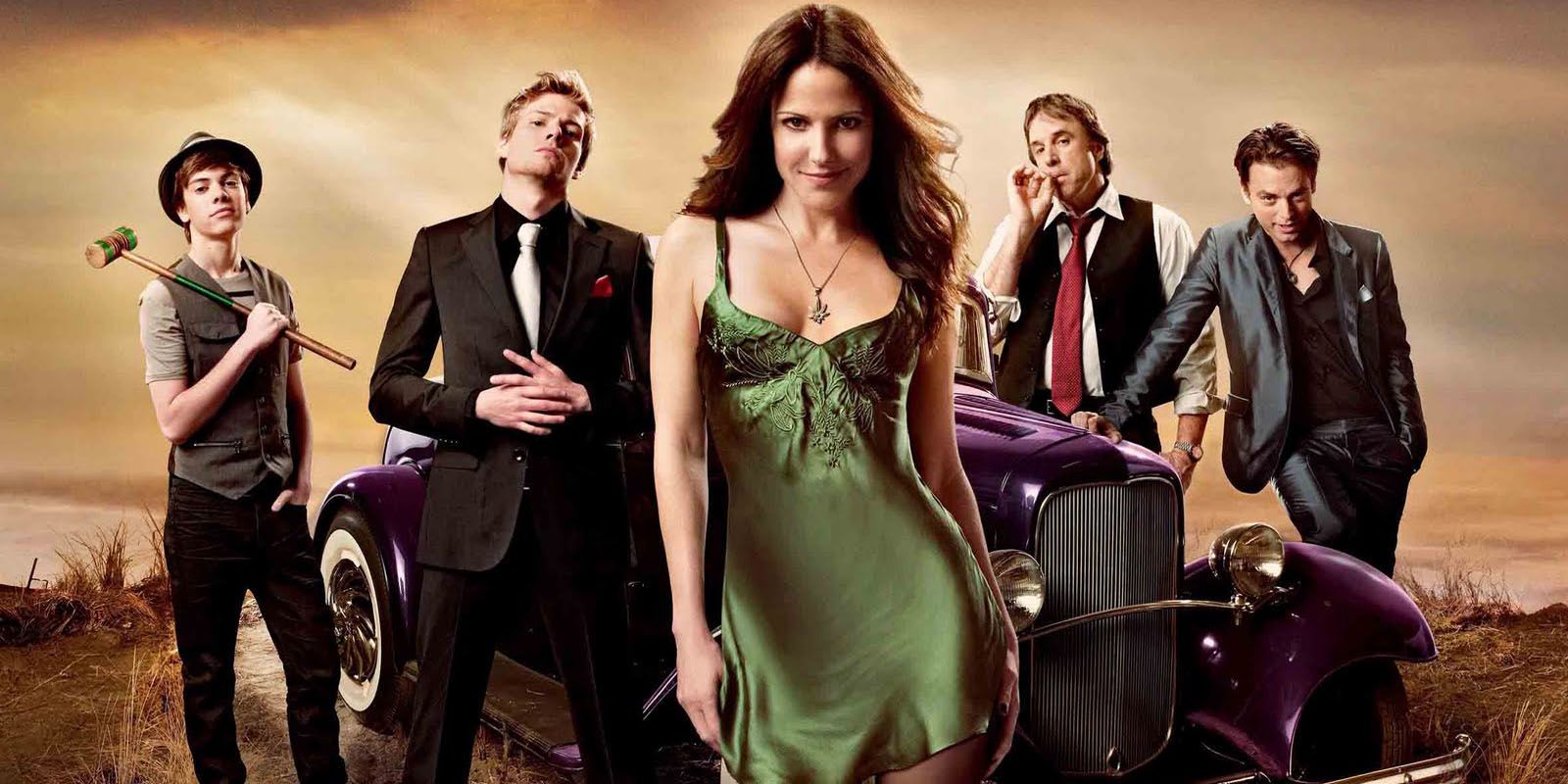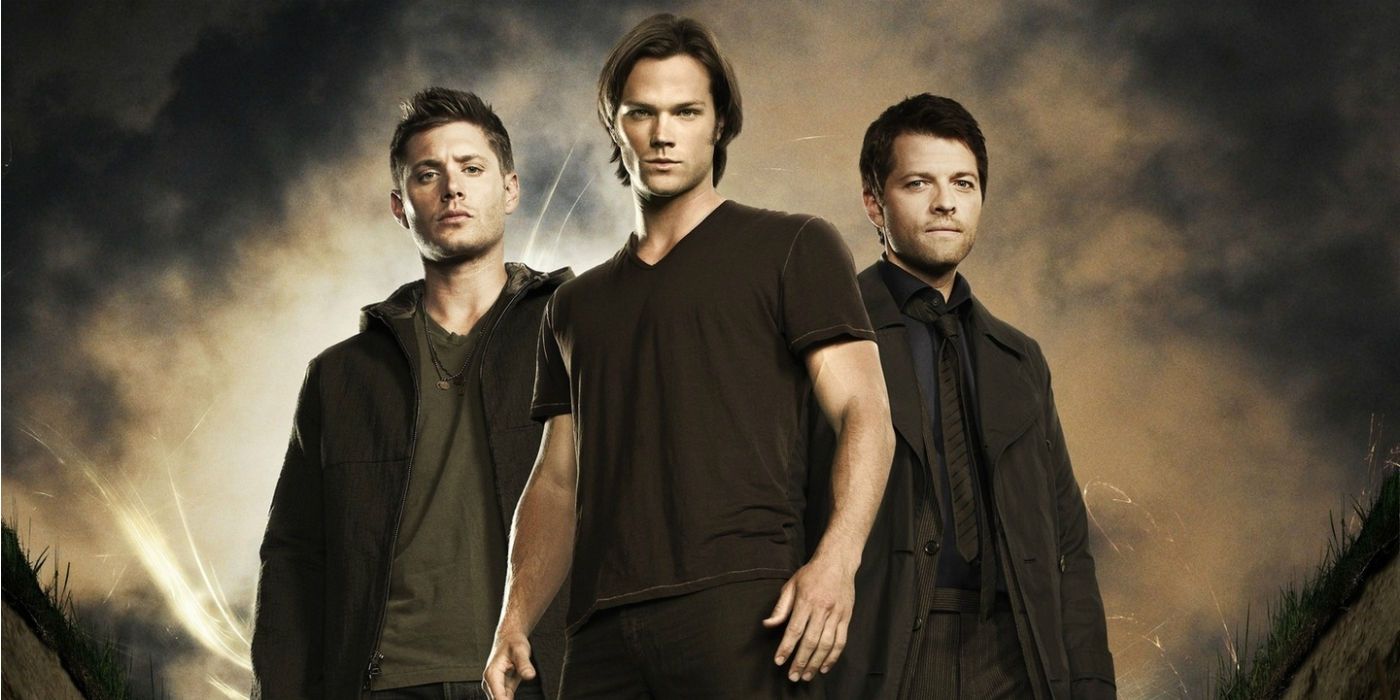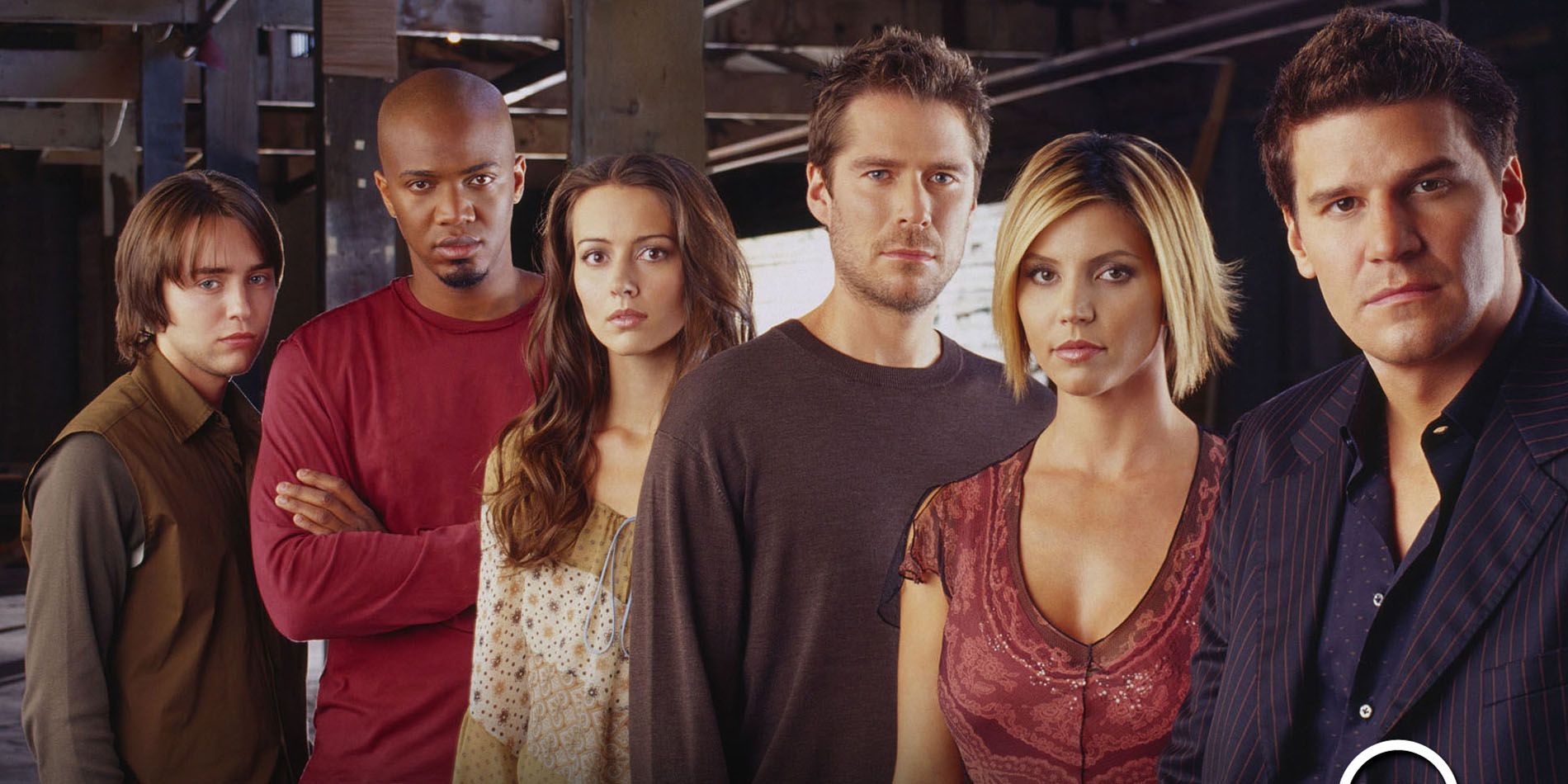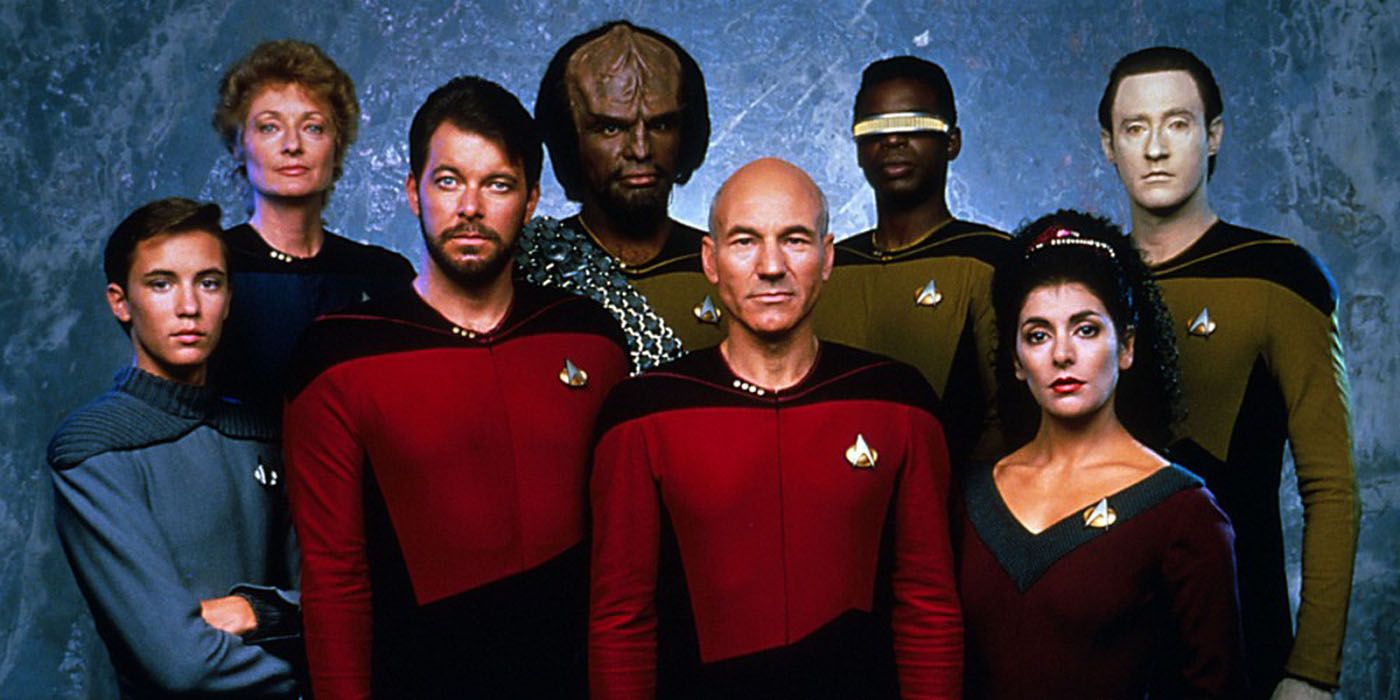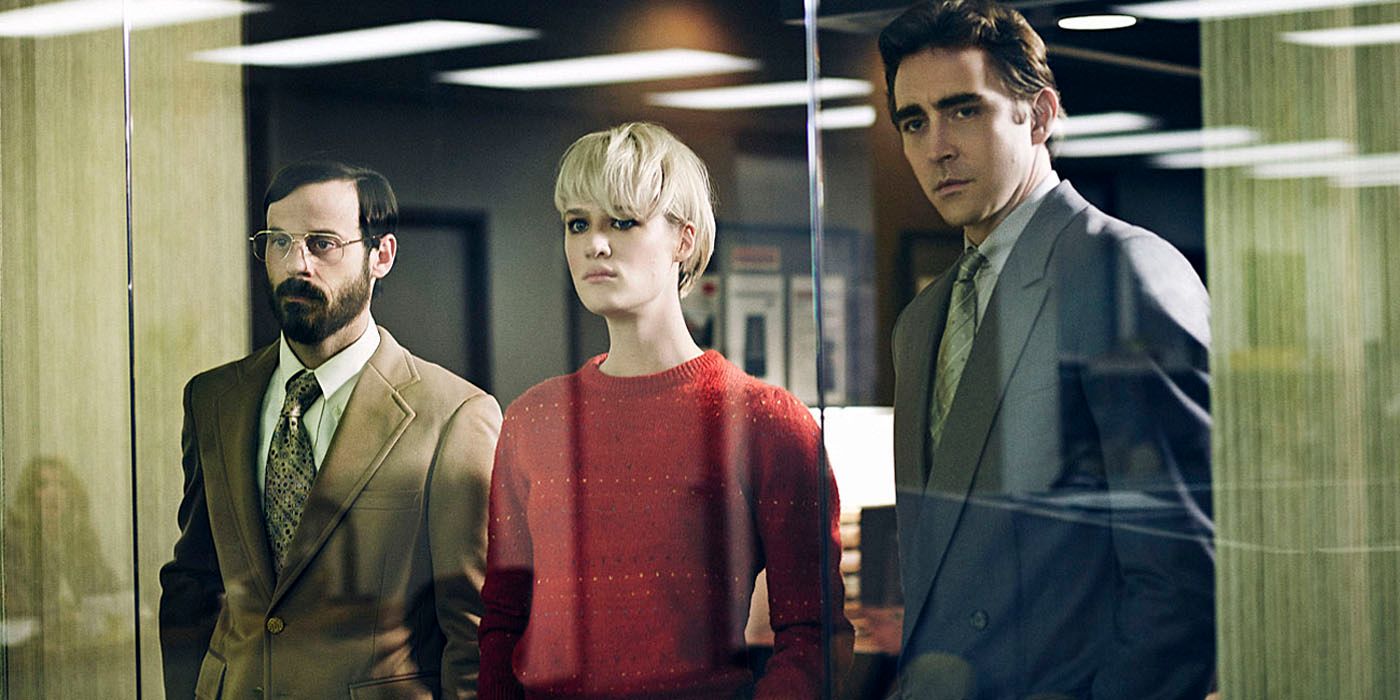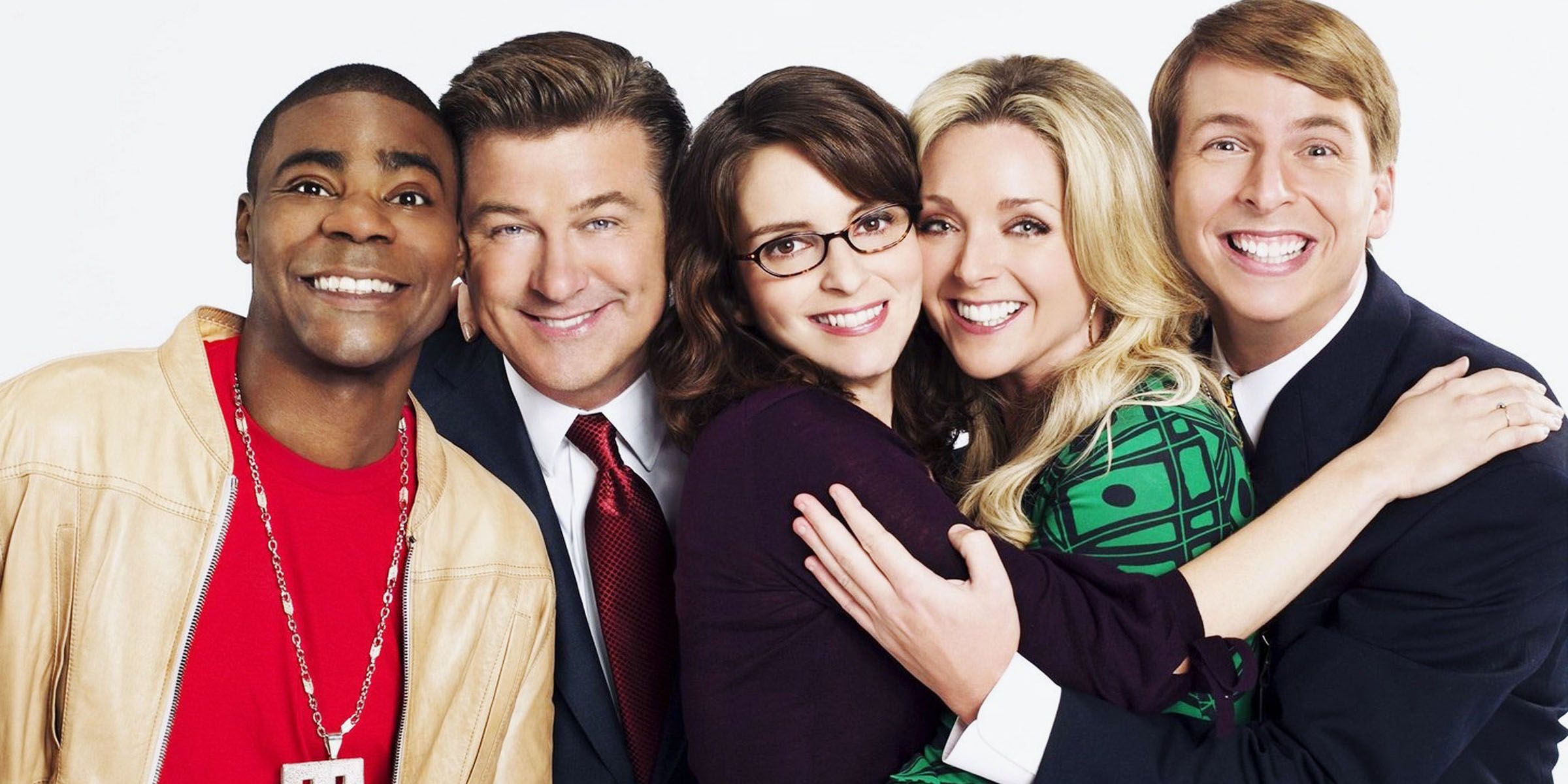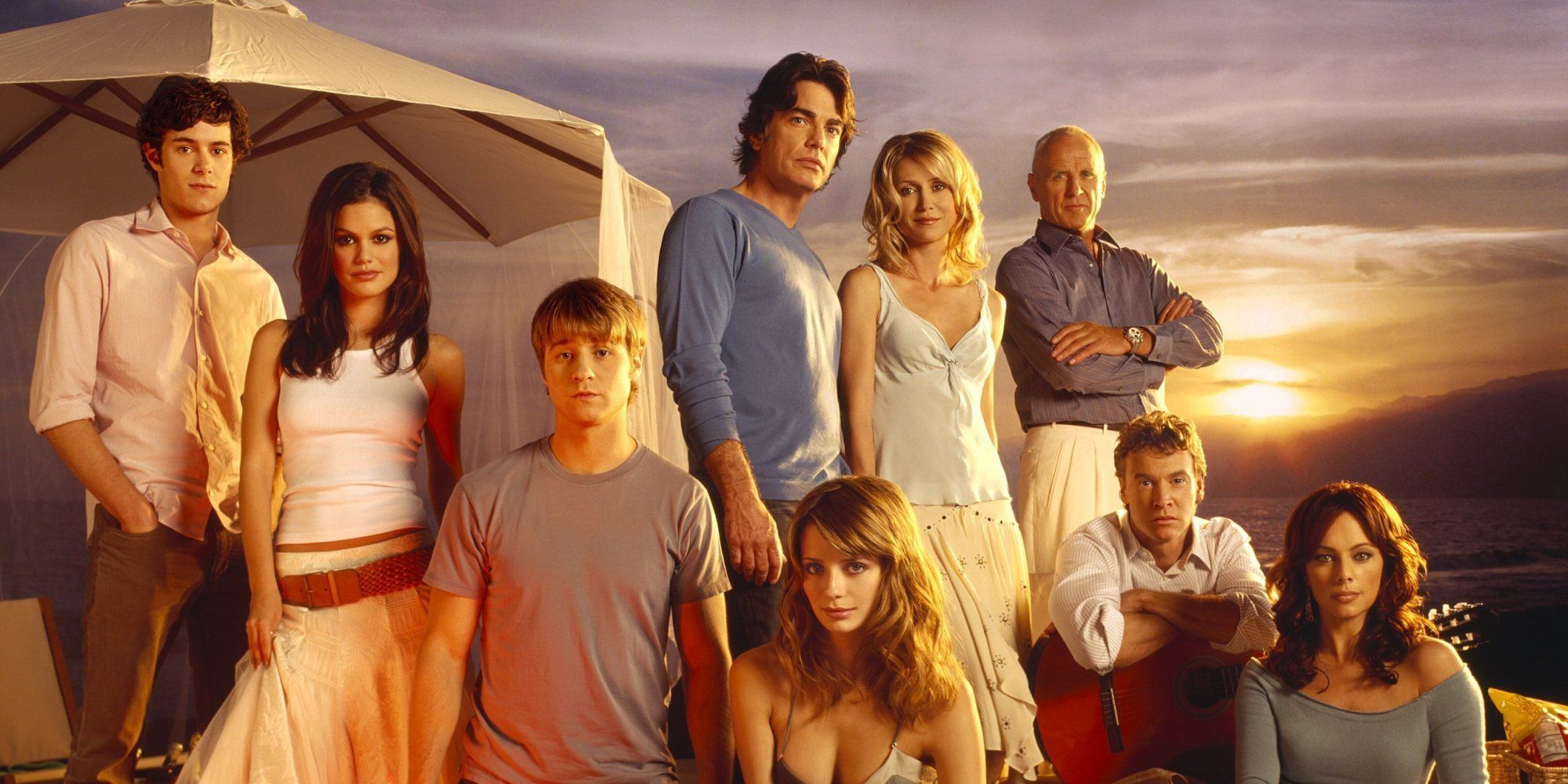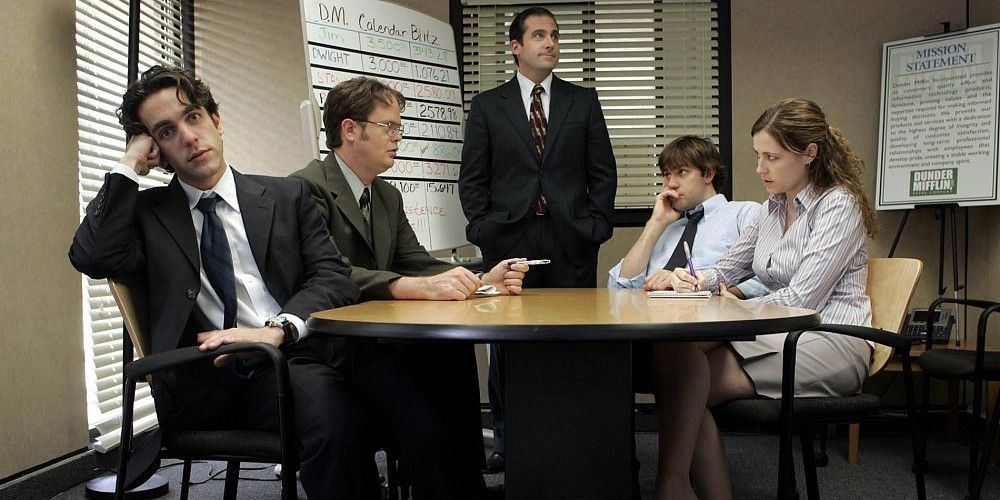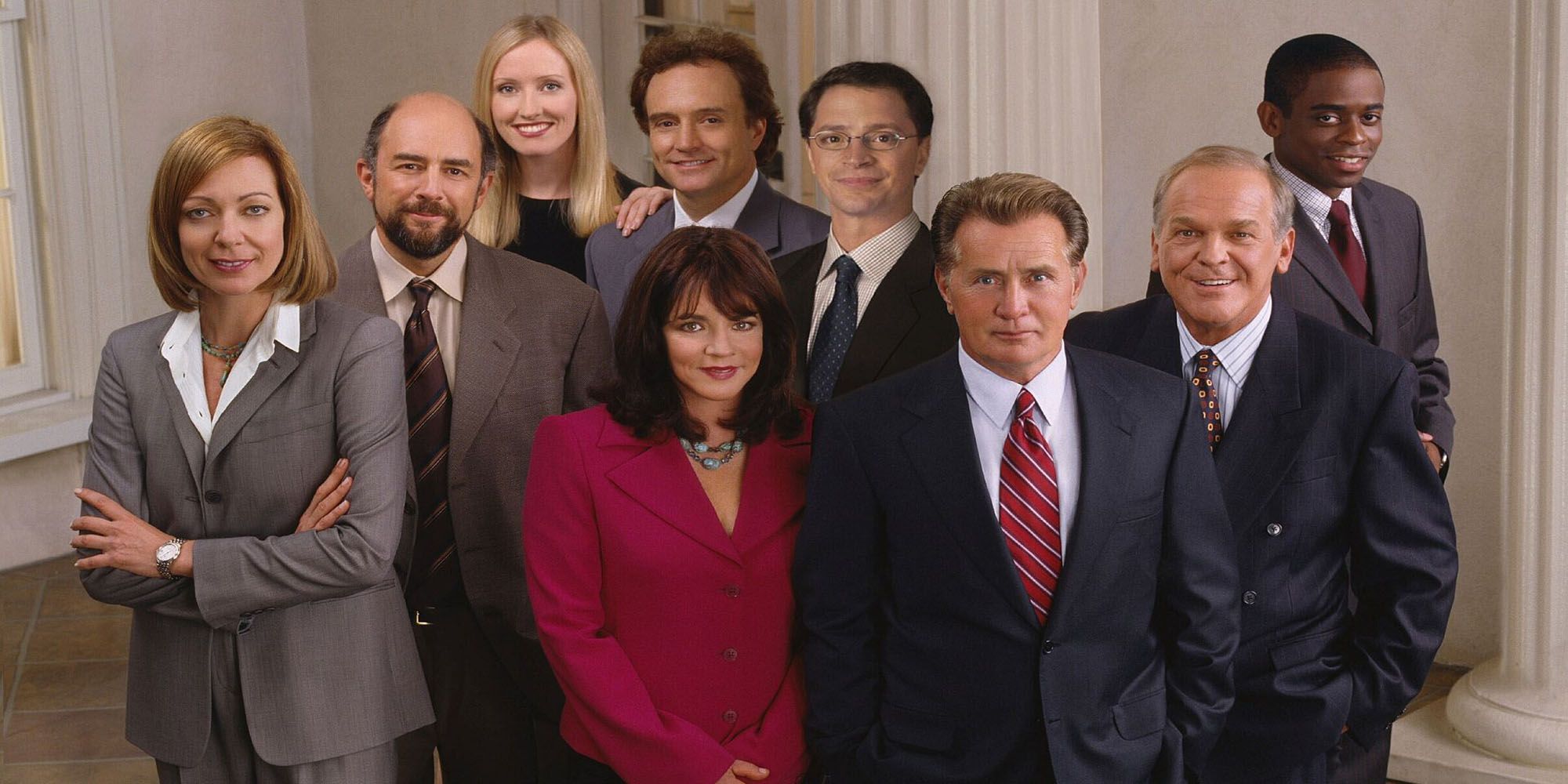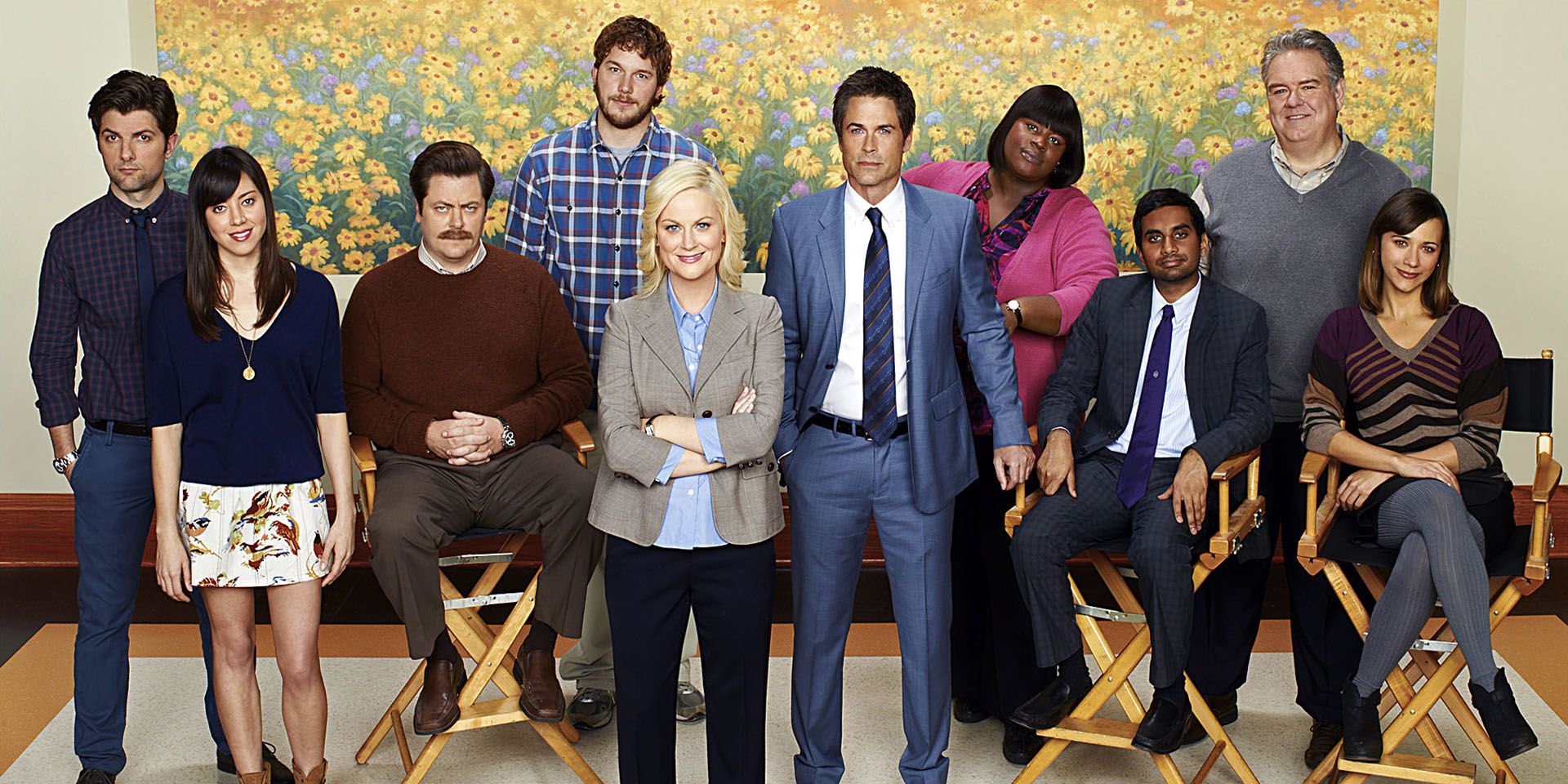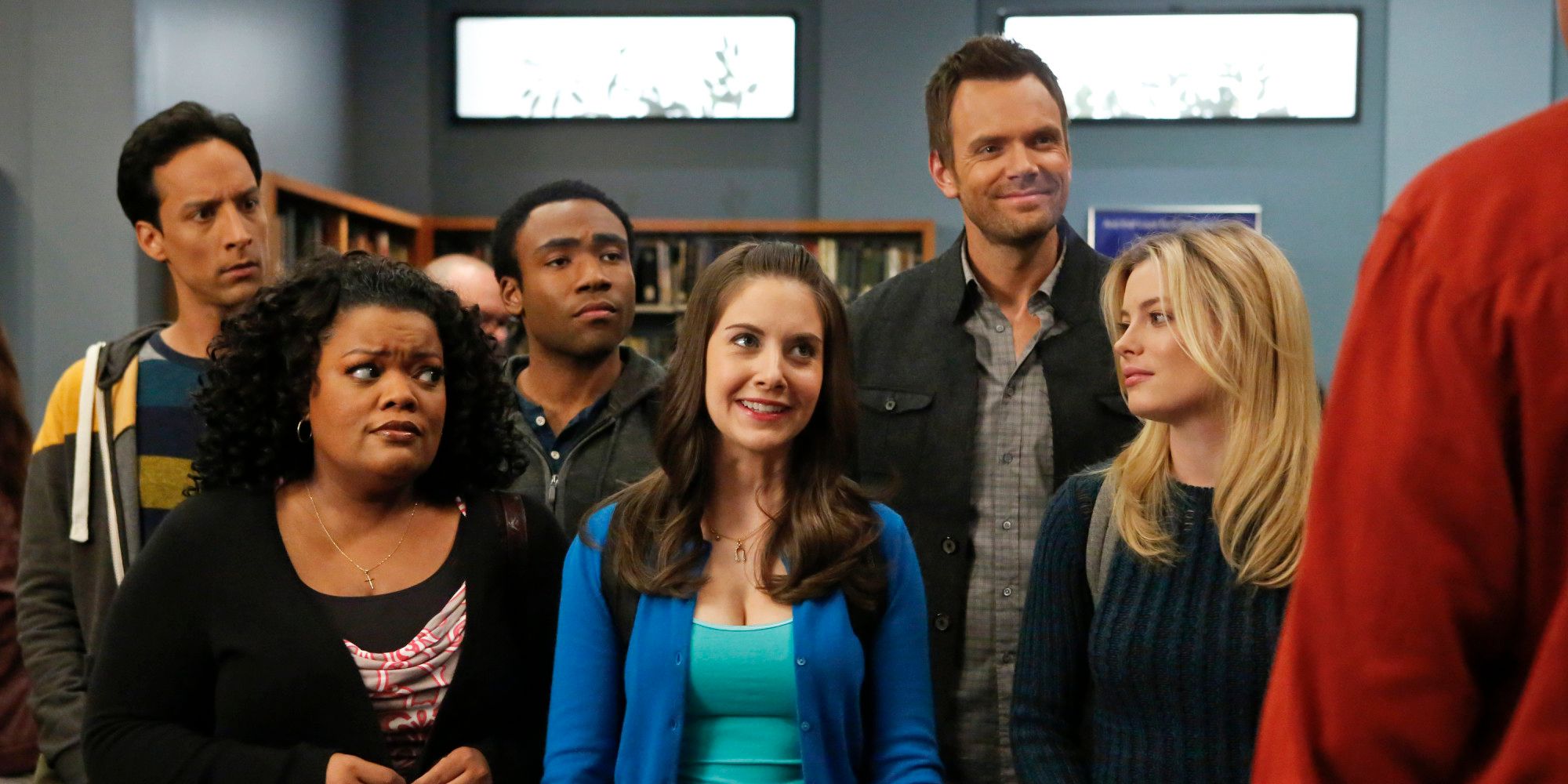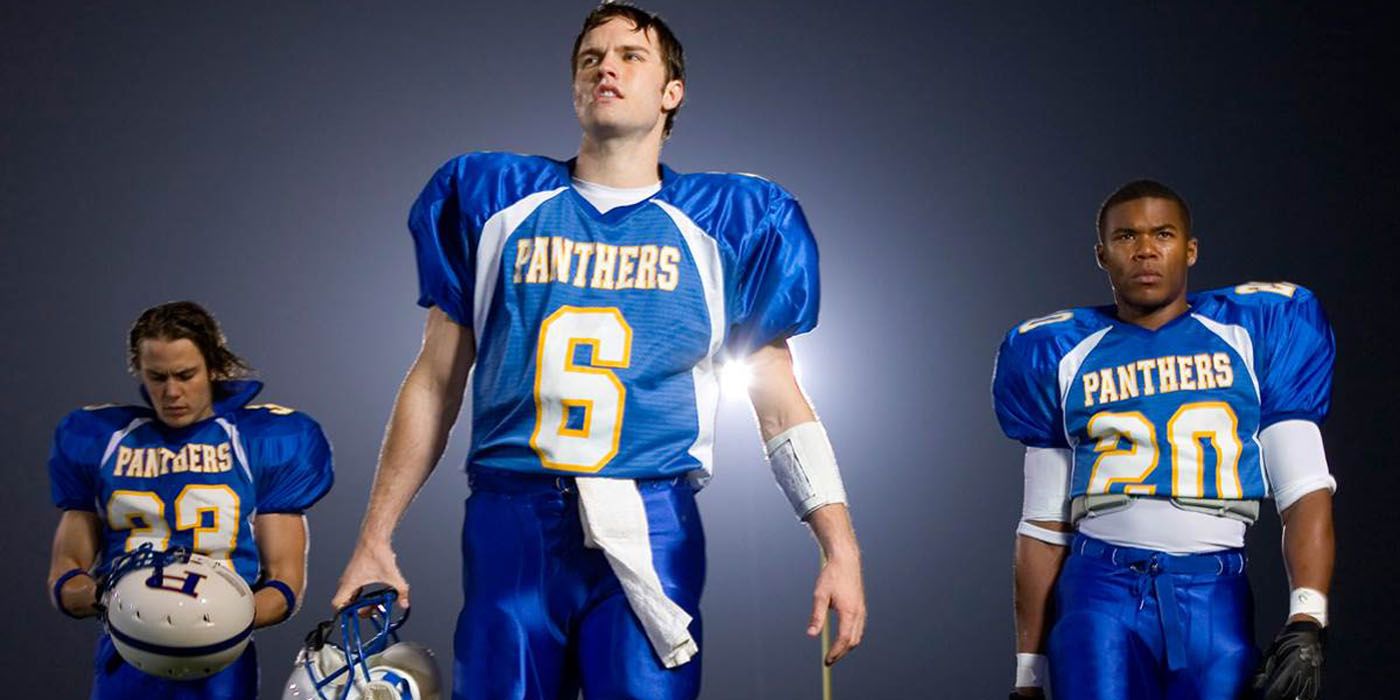Mapping a television series is an arduous task. There’s a relentless pressure to stay true to a show’s roots while also repeatedly upping the stakes. What flourishes one season may fizzle another, and the smallest misstep could unravel momentum entirely. Producers must not only appeal to viewers, but also keep their cast, crew, and network assuaged. A shift in behind-the-scenes structure could easily throw everything off balance.
It’s particularly difficult when there’s not a clear end. Writers have to be careful not to burn through good material should they have a lasting run, but do enough storytelling to wrap a show without a long game. A shifting landscape and constant stream of competitors means a series could get the axe even when least expected. With that in mind, it’s near impossible to avoid at least one bum year, but what’s more important is how they recover. Here are 14 Great TV Shows That Rebounded From Bad Seasons.
14. Buffy the Vampire Slayer (Season 1)
Buffy the Vampire Slayer remains a cult favorite even 13 years after its close. It spawned cultural studies and rabid fan fiction throughout its six-year streak, and continues to rank on many "Greatest TV Shows of All Time" lists. Fans flocked to its strong female lead (Sarah Michelle Gellar), complex story lines, and rich writing, applauding its skill at adding depth to the occasionally garish supernatural genre.
Looking back, however, many point to season one as being disjointed. At the time, it was an experimental follow-up to the mostly bland original movie of the same name. In the spin-off’s first outing, the fight scenes were clunky, the camerawork cramped, and the production more tawdry. It was enough to spark the initial buzz necessary to carry it through to renewal, but when compared to its eventual benchmark, the season is jarring. Its originality ultimately trumped its shortcomings, and its debut was met with a generally positive reception.
13. Weeds (Season 4)
Weeds premiered during a time when TV antiheroes were just getting trendy, and Nancy Botwin (Mary Louise-Parker) served as the ultimate exemplar: a suburban mom selling weed to make ends meet after her husband’s unexpected death. It was both heart-tugging and hilariously real, never taking itself too seriously.
Unfortunately, it peaked early, morphing from light satire to silly crime drama around season four and ditching its tongue-in-cheek fun for something more earnest. One of its biggest pitfalls was uprooting the Botwin family from suburbia, eliminating some its best comedic material. Dangerous drug cartels, rash murder, and a stint in prison made for increasingly off-the-rails plot twists before the series hit bottom. Season six regained some of the show’s initial grace, balancing its earlier whimsy with its newfound grit. It wasn’t enough to completely save the show, but it was an encouraging reminder of what Weeds once was and powered its most dedicated viewers through the end.
12. Supernatural (season 6)
As the longest-running fantasy series in North America, Supernatural was bound to hit a rough patch along its 12-season stretch. It tracks two brothers, Sam (Jared Padelecki) and Dean (Jensen Ackles), on a vengeful mission against demonic entities. After debuting in 2005 to mixed reviews, it quickly bloomed during its sophomore outing and continued to gain traction. As it pressed ahead, it layered its simple premise with inventive storytelling and a complicated but intriguing mythology.
A rabid fandom has helped propel it through the subsequent years, but the general consensus is that it fell apart around season six, and it’s been a slow, upward climb ever since. The relationship between Sam and Dean—once a selling point—seems to be its biggest flaw. Fans complain their disparate personalities were what initially made them riveting, but that tension has since dissipated. Its reception has also hinged upon how gripping each season’s villain is—a concept that has been largely hit or miss. But Supernatural revitalized much of its original magic in season 11, striking a balance between the touchstones that made its initial seasons work and introducing newly enticing material.
11. Angel (Season 4)
In an attempt to capitalize on Buffy the Vampire Slayer’s breakthrough success, producers Joss Whedon and David Greenwalt rolled out this spin-off in 1999. It focused on Angel (David Boreanaz), a vampire cursed with a newly restored soul, forcing him to relive centuries of torture and murder with a guilty conscience. He was also Buffy’s love interest throughout Buffy’s first few seasons. Here, he was a private detective working to “help the helpless” in Los Angeles, which typically included confronting both supernatural villains and his own inner demons.
Despite frequent comparisons to Buffy, Angel evolved into a strong standalone series. Tonally, it was darker and grittier. Where Buffy was the spirited underdog, Angel was the hardened antihero. Many point to its first season as a shaky start as it struggled to find its own voice, but after seeing how its third and fourth years shone, the fourth was its biggest let down. Fans found many of the storylines to be a betrayal to who the characters once were, and almost jumped ship. Luckily, the upset was short-lived. With only one more season in its lifespan, Angel rewound to its roots in the fifth and final run, ending on a high note.
10. Star Trek: The Next Generation (Season 1)
Nearly two decades after Star Trek first captivated crowds, it got its proper follow-up in 1987’s Star Trek: The Next Generation, which was set 100 years later with a fresh class of space agents. By then the original series had already achieved cult status, making the reboot a guaranteed knockout. Sure enough, its younger, sleeker spin reignited the craze, and ratings soared. It consistently ranked among the most-watched shows of its era, beating out hit competitors like Wheel of Fortune and Cheers.
Still, the new team took some time to flourish, and season one looks lackluster when placed against its later strengths. As with many ensemble casts, the chemistry dragged in the beginning—a detail made most noticeable when its members truly connected down the line. The direction was also unfocused at first, but eventually evened out. The Next Generation was never flat-out bad; it simply wasn’t as strong at the outset. Nonetheless, it was the first step toward building a mammoth franchise that persists today.
9. Lost (Season 3)
Lost is widely considered one of television’s greatest dramas. Its fresh premise was immediately intriguing: a group of plane crash survivors wake up on a seemingly deserted island, only to find it’s just as mysterious as it is isolated. As the show wore on, it blurred the lines between drama, sci-fi, and the supernatural, stringing viewers along with winding, twist-filled narratives.
Lost's penchant for broad concepts eventually caught up to the show in season three, when producers grew creatively stagnant. Critics chastised them for introducing too many ideas with not enough answers, and new characters Nikki and Paulo were universally reviled. Fans also panned the limited screen time for the main cast, singling out John Locke, whose episode count was cut drastically. This led to a major recalibration between the second block of third season episodes, and it paid off. Producers announced Lost would end after another three seasons, reassuring fans they had direction and making the final stretch a smoother run.
8. Halt and Catch Fire (Season 1)
Halt and Catch Fire is arguably one of the most underappreciated shows currently on television. Despite critical raves beginning in its sophomore run, it’s been a soft performer ratings wise, and has failed to generate any widespread buzz. The series itself examines the fascinating but oft-unexplored 1980s computer revolution, and the invention of the internet that followed. It’s admittedly niche, but its small circle of viewers have praised both its capable cast and aptitude for compelling storytelling.
Perhaps its downfall was its weak first season. The initial story arc was slightly aimless and a little light on substance, pushing too hard to make its geeky subculture look suspenseful and dangerous. It was a noticeable misfire, and viewers were divided on whether or not there was enough potential to stay tuned. Those who did were pleasantly surprised, as the series’ second outing proved concentrated, sharp, and fully shaped. Halt and Catch Fire has carried that impetus through its fourth and final season, though it remains woefully underwatched.
7. 30 Rock (Season 4)
30 Rock always thrived more on chemistry than structure. Saturday Night Live alum Tina Fey stuffed its half-hour format with deft sketches and mile-a-minute gags, placing the show's narratives squarely in second place rather than having them compete for the spotlight. It was a formula that worked, and brilliantly: the series amassed widespread acclaim and numerous awards, including a three-punch sweep at the 2008 Emmys that saw it bring home comedy’s Outstanding Series, Lead Actor, and Lead Actress for only the eighth time in Emmy history.
Midway through, however, it began to dip, and its fourth year marked a major lull in its otherwise triumphant run. This is where it drifted from its bread and butter, getting tangled in road-testing new characters and complementary story arcs. Alec Baldwin, who played controlling but suave network exec Jack Donaghy, famously slammed the subsequent fifth season, though critics agreed it was on the upswing. It had officially regained its footing by the sixth, opening the door for a final, seventh season victory lap.
6. The O.C. (Season 3)
When The O.C. hit the screen in 2007, it quickly snowballed into a pop culture keystone. It had all the fixings for a not-so-guilty pleasure: a rebel outsider, a girl next door, and plenty of drama and money to drive it. Shot amid California’s sweeping, sunny views, the series revolved around troubled teen Ryan Atwood (Ben McKenzie) as he adapts to the high-class world of Newport Beach and his affluent adoptive family, the Cohens.
It burned through two high-charged seasons before spiraling into a tailspin, shifting circumstances and characters en masse. Token socialite Marissa Cooper was expelled from private school, downgraded to a trailer park, and entwined in an unnecessary love triangle with forgettable surfer boy Johnny (Ryan Donowho). Ryan was ripped back to his hard-up roots by an old flame, and model couple Sandy and Kiersten’s marriage began to crack. But Marissa’s finale death paved the way for poignant storytelling, allowing for powerful self-reflection in its final, affecting season.
5. The Office (Season 8)
The Office did well to establish itself as a fresh, original offshoot from the preceding English series of the same name. Set in a Pennsylvania paper company’s humdrum workspace, the show traced the lives of its employees and their goofy, lovable, woefully incompetent boss, Michael Scott. After a lukewarm first season, the show hit its stride during its sophomore outing, presenting a uniquely American ensemble cast who balanced deadpan humor with a sentimental bite.
When Steve Carell left the show to pursue greener pastures toward the end of the seventh season, however, Michael’s absence was felt. His replacement, Robert California (James Spader), couldn’t truly carry the show, and the story lines felt frayed. The ninth season never fully restored The Office to its former glory, but it did go out with a beautiful string of final episodes that landed each character exactly where fans wanted them to be. Many argued it should have ended after Carell’s departure, but his appearance in the penultimate episode was unprecedentedly perfect.
4. The West Wing (Season 5)
The West Wing brought a more human side to the political proceedings we often see play out in the news, offering a compelling meditation on the personal and professional lives of a fictional batch of presidential advisers. Though knocked for its idealism, several White House affiliates and former staffers lauded its ability to capture the real feel of D.C.’s cutthroat environment. Its early seasons raked in much acclaim and many awards.
Showrunner Aaron Sorkin’s exit after season four, however, left it in disarray. The plot had grown increasingly twisted, leaving new head writer John Wells to sift through the existing loose ends. Though it maintained interest and still notched several award nominations, the show couldn’t match its previous drive and viewership subsequently lagged. In its final legs, Wells introduced an election storyline pegged to the search for President Jed Bartlet’s successor. The fresh angle revived its waning attraction, and allowed the show to finish strong.
3. Parks and Recreation (Season 1)
Parks and Recreation is one of the most widely beloved comedies in recent memory, but it took a beat for it to find its legs. The first season failed to dazzle, drawing early comparisons to its NBC sister show, The Office, and justly so: it similarly took place amid the small town monotony of a seemingly pedestrian workspace—this time Pawnee, Indiana’s Parks Department—and navigated the lives of its quirky but captivating employees.
But you’d be hard pressed to find any skeptics after its spectacular second season run. After a tepid start, it sailed, and impressively maintained that momentum. Linda Holmes of NPR hailed the recovery as, “the most impressive comeback in the history of broadcast comedy,” writing that, “In a single season, it went from a show that was widely shrugged off as the product of talented people in the wrong project to one that made many, many lists of the best shows of the year.”
2. Community (Season 4)
Community soared almost immediately out of the gate, splashing conceptually ambitious storylines with meta humor, wit, and consistent pop culture nods. It was both adventurous and wholly original, quickly accruing a fervent fan base. The series itself trailed Jeff Winger, a former lawyer forced to return to community college by his firm after pretending to have a bachelor’s degree. Once there, he set up a fake study group to get a pretty girl’s attention, but ended up meeting more classmates than he bargained for.
Against a solid six seasons, its fourth looms as an anomaly. In an odd sidestep, creator Dan Harmon was forced out of the show, only to return a season later. Its fourth outing was instead helmed by David Guarascio and Moses Port, co-creators of the short-lived Aliens in America. It’s inevitable that the move would alter the show’s fabric. Guarasci and Port did their best to keep it minimal, but they leaned a little too hard on repurposing Harmon’s style, and the show became self-parodic. With Harmon reinstated, that misfire quickly fizzled, and Community recovered its initial lure.
1. Friday Night Lights (Season 2)
Though Friday Night Lights never had hit ratings, it became a critical darling soon after its 2006 premiere, and many reflect fondly on its five-season run. Loosely inspired by H.G. Bissinger’s non-fiction book of the same name, the series followed a football-centric Texas town and the high school team that united it. It was just as gripping off the field as it was on, tackling issues of racism, marriage, family values, underfunding, and economic disparity, among others.
Its first season notched high praise but failed to attract the viewership necessary to propel it, leaving its second stab to fall flat. Under the network’s reign, the show resorted to melodramatic gimmicks to bait fans. Its most despised narrative nearly imploded the entire series: Dillon High’s resident brainiac, Landry (Jesse Plemons), saves beautiful bad girl Tyra (Adrianne Palicki) from an assault by killing her assailant. The two then dump the body in a river and spend the rest of the season covering it up. It was such a flop that the writers never mentioned it again, and its third season restored the magnetism that initially pulled an audience.
---
What shows did you stick with until they got good again? Let us know in the comments!

